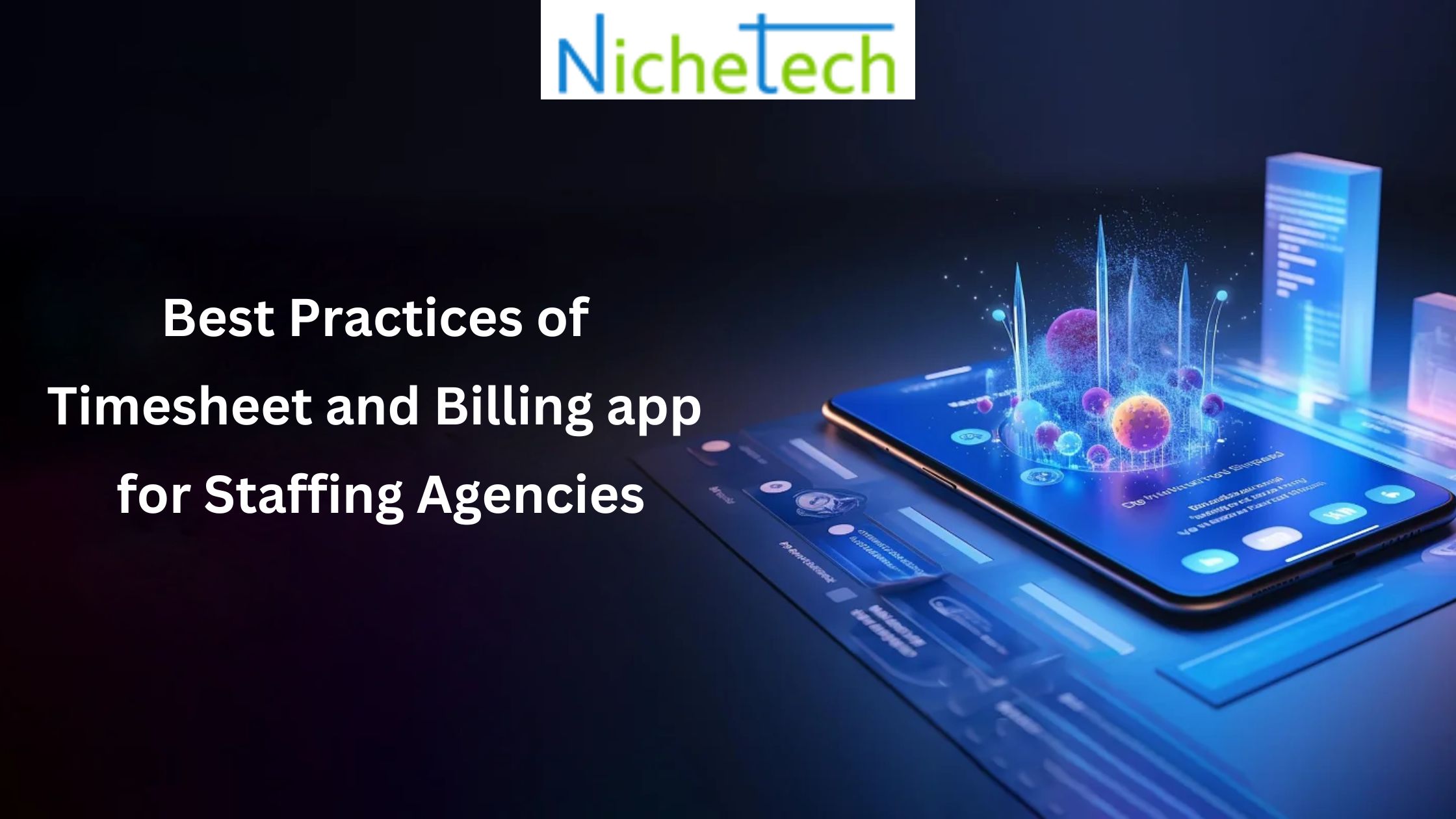Developing a Timesheet and Billing app for staffing agencies requires attention to both user functionality and back-end accuracy. Staffing agencies depend on such applications to track employee work hours, ensure accurate billing, and manage payroll. To meet the needs of both staff and employers, these apps must prioritize usability, accuracy, and integration. Here are best practices for developing such an application:
1. User-Friendly Interface
Simple Navigation: The app should be easy to navigate for employees, managers, and billing departments. Intuitive design ensures users can quickly log hours, approve timesheets, and generate invoices.
Responsive Design: Ensure the app is optimized for different devices, including mobile, tablets, and desktops, so users can access it from anywhere.
Clear Data Entry Fields: Fields for entering hours worked, breaks, overtime, and specific project details should be clearly labeled and easy to use.
2. Accurate Time Tracking
Clock In/Clock Out Feature: Employees should have the ability to clock in and out easily, either manually or through an integrated time-tracking system such as GPS or NFC.
Automatic Time Calculations: Implement automatic calculation for regular hours, overtime, and break time to minimize manual errors.
Multiple Job Tracking: Staffing agencies often have employees working multiple jobs. The app should allow for timesheets tied to different clients or assignments to avoid confusion.
3. Timesheet Approval Workflow
Two-Level Approvals: Introduce a system where both employees and supervisors can review and approve timesheets. This ensures accuracy and accountability before payroll or billing.
Notifications and Alerts: Send reminders to employees to submit their timesheets and notify managers when they need to review and approve timesheets.
Timesheet Locking: Once a timesheet is approved, it should be locked to prevent unauthorized changes.
4. Flexible Billing System
Multiple Billing Methods: Allow for different billing structures, such as hourly, daily, or project-based. This flexibility is crucial for agencies dealing with diverse clients.
Tax and Compliance Automation: Automate the calculation of taxes, deductions, and compliance with local labor laws and regulations to ensure that invoices are accurate.
Customizable Invoices: Allow staffing agencies to generate branded, professional invoices that can be customized for different clients and billing cycles.
5. Integration with Payroll and Accounting Systems
Payroll Integration: The app should integrate with popular payroll systems like ADP, QuickBooks, Gusto, or others to ensure seamless transfer of data for payroll processing.
Accounting Software Integration: Ensure compatibility with accounting systems like Xero, FreshBooks, or Zoho for easy reconciliation and accurate financial reporting.
Expense Tracking: Include functionality to log and approve employee expenses, allowing for easy inclusion in payroll or client billing.
6. Compliance and Security
Legal and Regulatory Compliance: The app should adhere to labor laws, overtime regulations, and tax rules that vary based on location (e.g., Fair Labor Standards Act in the U.S.). This is crucial for avoiding fines or legal issues.
Data Security: Implement strong data encryption, secure login methods (e.g., multi-factor authentication), and regular backups to protect sensitive employee and financial information.
Audit Trails: Keep a detailed audit trail for all timesheet edits, approvals, and billing adjustments to maintain transparency and accountability.
7. Reporting and Analytics
Custom Reports: Provide detailed reporting options on hours worked, billing history, job costing, and payroll expenses. Staffing agencies often need custom reports for different clients or for internal analysis.
Real-Time Analytics: Offer real-time dashboards that show current staffing levels, revenue projections, and billing performance to help agency managers make informed decisions.
Historical Data: Allow easy access to historical timesheet and billing data for auditing purposes or analyzing long-term employee and client trends.
8. Mobile Capabilities
Mobile App for On-the-Go: Create a mobile app for employees who are working remotely or on-site at different locations. This will allow them to log hours, check schedules, and submit timesheets on the go.
Offline Mode: Provide offline capabilities so users can track time even when they are not connected to the internet, syncing data once they are back online.
Geolocation Tracking: For staffing agencies needing location verification, geolocation-based time tracking can ensure employees are clocking in from the correct site.
9. Scalability
Support for Multiple Locations: The app should handle multiple locations or branches of the staffing agency, as well as international operations if needed.
Adaptability for Business Growth: As the staffing agency grows, the app should easily scale to accommodate a larger workforce and increased client base without compromising performance.
10. Client Access Portal
Self-Service for Clients: Provide clients with a dedicated portal where they can review timesheets, approve hours, and download invoices. This reduces administrative overhead and enhances transparency.
Custom Billing Preferences: Enable clients to set their billing preferences and receive notifications or alerts for pending approvals or invoices.
11. Customization and Personalization
Custom Workflows: Different staffing agencies may have specific workflows. The app should allow customization for approval chains, notification settings, and other processes tailored to the agency’s needs.
Personalized User Profiles: Allow employees and managers to customize their dashboards, set personal reminders, and access relevant features quickly.
12. Support and Training
Onboarding Assistance: Provide comprehensive onboarding guides, tutorials, or videos to help users quickly understand how to use the app.
Customer Support: Offer reliable customer support for troubleshooting or technical assistance. Consider offering chatbots or live chat for quick response times.
Regular Updates and Maintenance: Ensure the app receives regular updates with new features, security patches, and improvements based on user feedback.
13. Multi-Language and Multi-Currency Support
Internationalization: If the staffing agency works with clients or employees from different regions, ensure the app supports multiple languages and currencies for timesheets, invoices, and payroll processing.
14. Automation for Recurring Tasks
Auto-Invoicing: For long-term staffing engagements, automate the invoicing process to generate and send invoices based on approved timesheets at regular intervals.
Recurring Payroll Runs: Automate payroll runs for hourly employees to reduce manual effort, ensuring staff are paid on time without fail.
15. Compliance with GDPR and Data Privacy Laws
GDPR Compliance: If the staffing agency operates in the European Union, ensure that the app complies with GDPR guidelines, giving users control over their personal data.
Data Retention Policies: Implement data retention and deletion policies to ensure that sensitive data is stored and disposed of according to legal and contractual obligations.
By adhering to these best practices, you can create a Timesheet and Billing app that simplifies time tracking, ensures accurate billing, streamlines payroll, and improves overall efficiency for staffing agencies. A focus on user experience, automation, and compliance will result in a tool that not only meets industry standards but also enhances productivity and satisfaction for both employees and clients.







